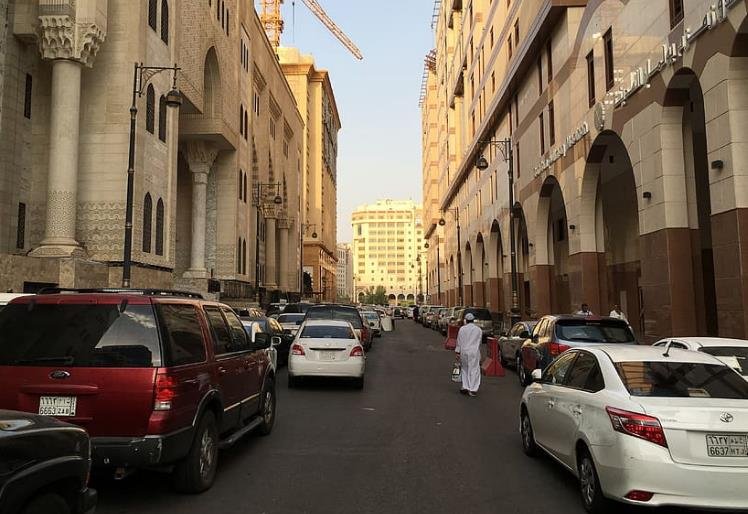Saudi Arabia, the largest economy in the Middle East, has set an ambitious target to increase the share of non-cash payments to 70% of all transactions by 2025, according to Philip Drury, Global Head of Technology and Communications Banking, Capital Markets, and Advisory at CitiGroup. The target is part of the kingdom’s Vision 2030, which aims to diversify the economy, boost the financial sector, and enhance the digital transformation. The kingdom has made significant progress in achieving this goal, as it has witnessed a surge of fintech firms, digital banking licenses, and electronic payment solutions in recent years.

Fintech: A booming sector in Saudi Arabia
Fintech, or financial technology, is a sector that uses technology to provide innovative and convenient financial services to customers, such as mobile payments, online banking, peer-to-peer lending, and crowdfunding. Fintech has been growing rapidly in Saudi Arabia, as the kingdom has become home to 147 operational fintech firms, a great leap from just 10 in 2018, Drury said during the third edition of the Saudi Capital Market Forum (SCMF) 2024, which was held in Riyadh on February 19-20.
Some of the factors that have contributed to the growth of fintech in Saudi Arabia include:
- The support and guidance of the Saudi Central Bank (SAMA), which has launched several initiatives and programs to foster the fintech ecosystem, such as the Fintech Saudi hub, the Regulatory Sandbox, the Open Banking policy, and the Payment Services Providers license.
- The demand and adoption of the customers, especially the young and tech-savvy population, who are looking for more convenient, secure, and affordable financial services, and who have embraced the use of digital channels, such as the Mada card, the STC Pay app, and the Absher platform.
- The investment and innovation of the players, both local and international, who have entered the fintech market with various products and solutions, such as the Saudi Payments Company, the Saudi Digital Payments Company (STCPay), the National Commercial Bank (NCB), and the Saudi British Bank (SABB).
Non-cash payments: A key indicator of financial development
Non-cash payments, or electronic payments, are transactions that are made without using physical cash, such as banknotes or coins, but rather using digital means, such as cards, mobile phones, or online platforms. Non-cash payments are a key indicator of the level of financial development and inclusion of a country, as they reflect the efficiency, security, and accessibility of the payment system, as well as the availability and affordability of the financial services.
Saudi Arabia has been working to increase the share of non-cash payments in its economy, as part of its Vision 2030, which aims to reduce the dependence on cash, promote the digital transformation, and improve the financial inclusion and literacy of the masses. The kingdom has set a target to reach 70% of non-cash payments by 2025, which is a significant increase from the current level of 36%, according to SAMA.
Some of the benefits of increasing the non-cash payments in Saudi Arabia include:
- Enhancing the transparency and accountability of the financial transactions, and reducing the risks of fraud, corruption, and money laundering.
- Boosting the economic growth and productivity, and creating more jobs and opportunities in the financial sector and related industries.
- Improving the customer experience and satisfaction, and offering more choices and convenience for the consumers and merchants.
- Supporting the social and environmental causes, and reducing the environmental impact and cost of cash production and distribution.
SCMF 2024: A platform for showcasing the Saudi capital market
The SCMF 2024, which was held under the patronage of Mohammed Al Jadaan, the Minister of Finance and Chairman of the Financial Sector Development Program, was the largest oil and gas event in North Africa and the Mediterranean region. The forum, which had the theme of “Powering Growth”, featured more than 54 speakers and 69 sponsors, and attracted more than 3,000 attendees from various sectors and industries.
The forum aimed to showcase the latest developments and opportunities in the Saudi capital market, which has been witnessing a remarkable recovery and growth in recent years, thanks to the reforms and incentives implemented by the Saudi government and the Capital Market Authority (CMA). The forum also facilitated the networking and collaboration among the stakeholders and the experts in the capital market, and highlighted the achievements and discoveries in the oil and gas sector.
Some of the key announcements and outcomes of the SCMF 2024 include:
- The launch of Single Stock Options (SSOs) contracts on the Saudi National Bank (SNB), which is the first time that the bank’s shares will be traded as a derivatives product in the Saudi Exchange.
- The announcement of three new members in the Derivatives Market, namely Al Rahji Capital, Al Khabeer Capital, and Al Jazira Capital, which will commence brokerage services later this year.
- The revelation that the number of initial public offerings (IPOs) in the pipeline across the Saudi Exchange’s Main market and the Nomu-Parallel market has increased by 30% year-on-year (YoY) to 56, compared to the previous year.
- The statement that the gross domestic product (GDP) of Saudi Arabia has surged to more than SAR 4 trillion from SAR 2.60 trillion in nominal terms, and that the non-oil GDP has grown by 4.9% in 2023.
